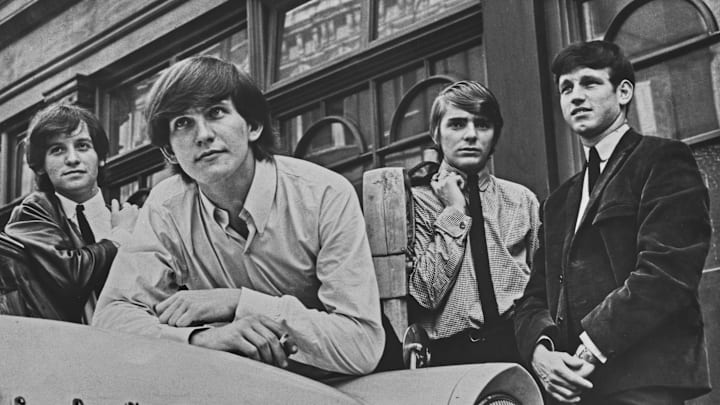THE 13TH FLOOR ELEVATORS – 1966-1969 (4 albums)
There was another band from Texas who could have been included in my 1970s early break-up list called The Flatlanders. They reformed years after their early break-up and released their iconic album entitled More a Legend Than a Band. That would have been an appropriate name for the 13th Floor Elevators too. Hailing from Austin in the mid-1960s, they played a brand of music that hadn’t really been heard before. A writer on these very pages has already gushed about their second album, Easter Everywhere, as being a foundational piece of psychedelia. (All right – it was me.) You can read about that later if you’d care to.
For now, though, I want to point out that one of the things that made the Elevators so important was that they went well beyond psychedelia. Other crucial Texas rockers as diverse as ZZ Top, the Butthole Surfers, and Ray Wylie Hubbard were heavily influenced by Roky Erikson’s iconic voice and guitar, and Tommy Hall’s insanely hypnotic electric jug.
“You’re Gonna Miss Me” kicked off their first album with classic garage energy. But there was also this throbbing, fluttering sound that no one could really figure out. That was the jug. When Gibby Haynes of the Butthole Surfers strobed his vocals through their far-left take on Donovan’s “Hurdy Gurdy Man,” I suspect he had Tommy Hall’s jug in his head.
That first album could get ponderous and pretentious at times, but the Elevators were getting better by getting weirder on Easter Everywhere. And on the fourth and final album, the third member of their singing/songwriting team, Stacy Sutherland, took over from Erikson and Hall and launched them in another new direction, flirting with Grateful Dead-style jams. Before that, though, in truly bizarre Elevators fashion, they released Elevators Live!, which was not a live album, but did have a crowd edited into the tracks.
The Elevators had fallen apart by the end of the decade. They were beloved by their fans but didn’t sell very well. Erikson had myriad issues and Hall was questioning whether music was the career for him. But they stretched rock & roll in a lot of directions, and are still revered in Texas and by fans of psychedelia. Had the original lineup been able to stay together, who knows where they might have gone next?
